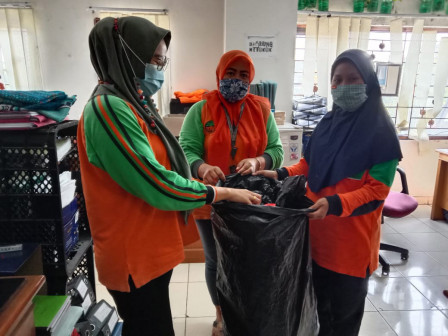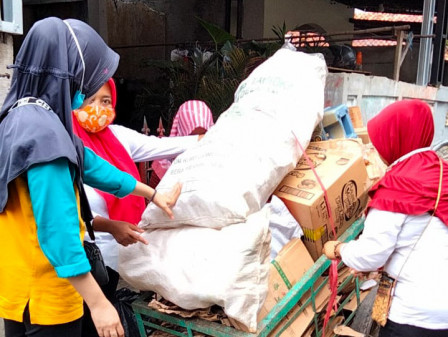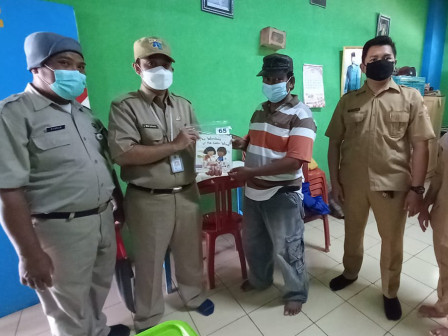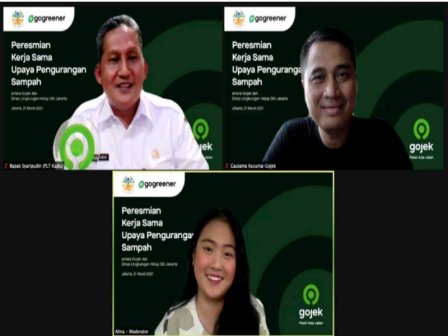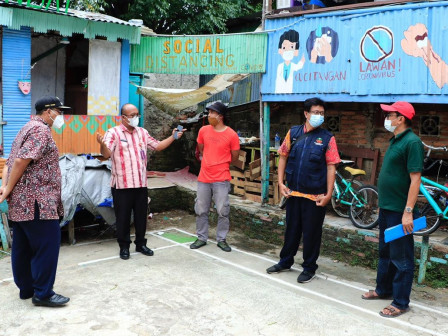North Jakarta LH Targets to Reduce Waste by 24 Percent
Reported by Rezki Apriliya Iskandar | Translated by Maria Inggita
North Jakarta Environment (LH) Sub-agency continues to reduce waste volume in the region, especially for inorganic waste.
We reduce several types of inorganic waste, such as paper, plastic, metal, glass, and others
North Jakarta LH Sub-agency Head, Achmad Hariadi mentioned, his side targeted to reduce waste by 24 percent in 2021.
"There are several efforts that can be done, such as reducing organic waste by composting, cultivating maggots, and so on. While reducing inorganic waste can be done through waste bank," he said, Thursday (4/22).
Tugu Selatan Waste Bank Collects 4,056 Kg of Plastic WasteIn January-March period, his side has reduced 464,340.33 kilograms or 464.34 tons inorganic waste in North Jakarta. In detail, 155,032.75 kilograms waste in January, 164,652.28 kilograms in February, and 144,655.30 kilograms in March. This amount was collected by 405 active waste banks throughout 6 sub-districts in North Jakarta.
"We reduce several types of inorganic waste, such as paper, plastic, metal, glass, and others," he added.
Reducing inorganic waste is a part of implementing Gubernatorial Regulation (Pergub) No. 77/2020 on Waste Management in RW. Non-economical inorganic waste such as plastic bags, clear plastic bags, plastic sacks, things made from plastics such as banners, tarpaulin, and plastic packaging for food and beverages are no longer disposed to Bantar Gebang Integrated Waste Management Site (TPST), Bekasi, West Java.
"Inorganic waste that has no economic value, such as plastic bag, will be recycled into platic boards, while other plastic products will be recycled into syngas (synthetic natural gas)," he explained.
Through waste charity activity (Sedekah Sampah), inorganic waste which collected by residents through RW Waste Management Division will be picked up by officers based on schedule. Thus plastic waste will not be disposed to Bantar Gebang TPST, but it will be recycled.
"In this program, we collaborate with stakeholders, waste banks, environmental communities, RT/RW administrators, and others. The RW Waste Management Division can coordinate with the related parties in RW, such as waste banks, Sedekah Sampah administrators, PKK, Children-Friendly Integrated Space (RPTRA), worship places, schools and officers within the RW," he stated.

